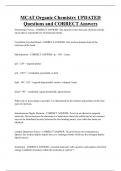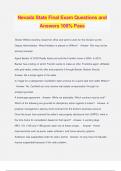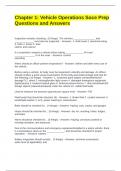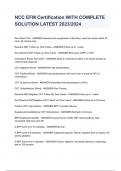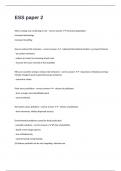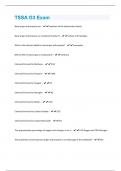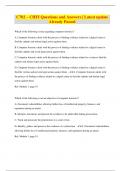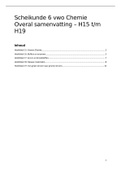Exam (elaborations)
MCAT Organic Chemistry UPDATED Questions and CORRECT Answers
- Course
- Institution
MCAT Organic Chemistry UPDATED Questions and CORRECT Answers Electrostatic Forces - CORRECT ANSWER- The attractive force between electrons and the nuclei that is responsible for all molecular bonds. Coordinate Covalent Bond - CORRECT ANSWER- One nucleus donates both of the electrons in the ...
[Show more]
